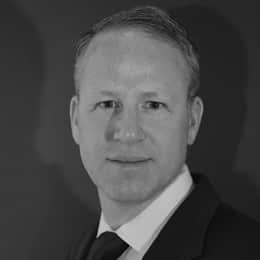Atlas Shrugged Is A Book About Pride In One’s Work, And The Success That Results
Do fishermen enjoy Hemingway’s The Old Man and the Sea? Do generals like Tolstoy’s War and Peace? I have no idea, but I’m reasonably sure no one looks to these novels for advice on how to catch fish or wage war. The purpose of a novel is not to provide concrete advice on particular tasks, but to present a vision of man and his place in the universe.
In Atlas Shrugged, Ayn Rand presents a vision of man that is unlike anything ever written. Rand’s ideal man is the visionary, the genius, the producer. Her foremost representatives of this ideal are businessmen, whom she portrays, at their best, as heroes, not villains; creators, not parasites.
Rand’s vision has inspired successful people from all walks of life for generations. They love the book, not because it tells them how to make better yoga clothing or run a better taxi service, but because it offers profound insights about the principles that lead to success (or failure) in any field, and it shows those principles playing out in the lives of the novel’s characters.
The book has been criticized often in the five decades since it was published. Most frustrating for those of us who love it are critiques that misunderstand its essential points and end up attacking straw men. Rand, they often say, believed that only the strong should survive or that a man’s worth is measured by the size of his wallet. Writing in the Business Insider, Max Nisen does all this but adds a new twist. In “‘Atlas Shrugged’ is Full of Terrible Business Advice,” Nisen criticizes the book for not being a better version of the Seven Habits of Highly Effective People.
Of course, Atlas Shrugged isn’t a business how-to manual. But it is full of powerful advice if you’re willing to consider what Rand actually says. Here are some of the real lessons in the novel that make it a favorite of so many productive, successful people.
Take pride in your success.
Like so many critics of Atlas Shrugged, Nisen claims Rand conveyed that successful people are inherently superior to everyone else. But anyone who has read the novel knows it is filled with noble characters who achieve only modest financial success. Eddie Willers, friend and ally to railway magnate Dagny Taggart; Gwen Ives, industrialist Hank Rearden’s superlative secretary; Cherryl Brooks, the store clerk who tragically marries a villain thinking he is a hero; Jeff Allen, the proud tramp who stows away on a Taggart train and is hired by Dagny; even a young bureaucrat who is assigned to monitor Rearden Steel and ends up becoming Rearden’s ally. The heroes in the novel don’t look down on these characters. They treat them as friends and allies. Clearly, Rand recognizes that moral character stems from the choices people make, not their wealth or status.
So Rand doesn’t condemn anyone for failing to become rich and successful. But she does condemn those who despise others because they are rich and successful. The “hallmark of the second-rater,” she has one of her characters say, “is resentment of another man’s achievement.” She spends much of the novel showing just how resentment of achievement — which she called hatred of the good for being the good — is destroying society.
Was she right? Well, President Obama thinks that “you didn’t build that.” We hear every day that we should despise and tax the “1%” because they are wealthy. Evidence of the resentment of success is all around us. Ayn Rand saw that in 1957, when Atlas Shrugged was published. And she knew that this attitude could prevail only if the successful allowed it to, by feeling guilty for their achievements. Rand’s response was clear: take pride in any success you’ve earned and never apologize for it.
Pursue your own happiness and achieve it.
Another common criticism of Atlas Shrugged, which Nisen repeats, is that its characters are motivated by money alone. This is an odd claim about a novel that is filled with characters who love their work and continually strive to achieve more and more, often at great short-term cost. Hank Rearden spends ten years developing a new alloy. Dagny leaves a secure position at Taggart Transcontinental and works around the clock to develop a new railroad, the John Galt line. Is money important to these characters? Yes, of course, but making money is not their primary motive. Money, as Rand recognizes, is not an end in itself, but only a means. The end — the purpose of all that hard work — is achieving happiness. And Rand believes that is possible. As her protagonist, John Galt, says, “The world you desired can be won, it exists, it is real, it is possible, it’s yours.”
Money is the product of virtue.
Speaking of money, critics also often misunderstand Ayn Rand’s view of it. In the novel, she gives that explanation to copper magnate Francisco d’Anconia, who answers the claim that money is the root of all evil. Nisen picks out one paragraph where d’Anconia says gold is an objective form of money because, unlike paper, it cannot be manipulated by government. Nisen cites a couple of articles that supposedly show the gold standard is bad, not good. They even have graphs. And he recommends that readers watch a video of Fed Chairman Ben Bernanke saying the same thing.
Certainly, if you are interested in all the debates about the gold standard, you can watch the government’s chief money manipulator respond to the view that he shouldn’t manipulate the money supply. After that, you might read the hundreds of books and articles on monetary policy from the last eight decades or so. Ayn Rand doesn’t try to address all of that in Atlas Shrugged. There are no graphs in the novel.
Instead, Rand focuses on fundamental questions about money, just as she focuses on fundamental questions on every issue. She asks: what is money and what role does it play in our lives? She argues that it isn’t the root of all evil, but the product of all the hard work and thought that sustains us. Money, as Rand says, “is the creation of the best power within you, and your passkey to trade your effort for the effort of the best among men.” If you value your mind, your work, and your life, Rand holds, then you will value money. And if government can control and devalue our money, then government can control and devalue our lives.
When have you ever heard an economist say that?
Trade is a virtue, but sacrifice is not.
Nisen says that the businessmen in Atlas Shrugged have contempt for their customers because in one scene, Hank Rearden says he would rather destroy his metal than sell it to anyone who demands that he produce it for them as his duty. But Rand’s point is that there is a big difference between trade, which is a virtue, and sacrifice, which is a vice. In fact, the heroes in the novel treat their real customers — those who want to trade with them, rather than take from them — with great respect. Rearden, for example, spends much of the novel figuring out how to produce enough of his metal to satisfy customers who are becoming more and more desperate for it as the economy collapses. But one of the primary points of the novel is that no one should work for their own destruction. Today, we see calls for businessmen to sacrifice more and more every day. Is that good business advice?
Government is a necessary good.
Finally, Rand does not treat government as a “pure antagonist” as Nisen and other critics claim, but as an essential institution that protects the rights on which individuals and businesses depend every day. Of course, Rand does illustrate the evil of a government that becomes a violator rather than a protector of rights. If you think she is wrong, look around. Is our ever-expanding government really the solution to what ails us today, or the problem?
The bottom line is that Atlas Shrugged isn’t an economics text or a business how-to manual, it’s a brilliant novel of ideas that challenges conventional thinking on every major issue in life — not just money, but work, family, politics, and even sex. It does contain great advice, just not the sort of advice that critics like Nisen prefer.
But if you want to see that, my advice is to go read it yourself.



